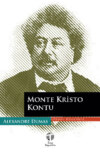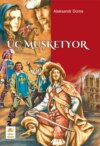Kitabı oku: «The Last Vendée», sayfa 6
"Well, Monsieur le baron," said Rosine, with much pride, "what did I tell you?"
"What did you tell him?" said the girl in the mantle.
Michel sighed. By the firm and decided tone of voice he knew she was Bertha.
"I told him that I shouldn't be turned away from your house as I was from the château de la Logerie," answered Rosine.
"But," said Michel, "perhaps you have not told Mademoiselle de Souday what is the matter with your father."
"From the symptoms," said Bertha, "I suppose it is typhoid fever. That is why we have not a minute to lose; it is an illness that requires to be taken in time. Are you coming with us, Monsieur Michel?"
"But, mademoiselle," said the young man, "typhoid fever is contagious."
"Some say it is, and others say it is not," replied Bertha, carelessly.
"But," insisted Michel, "it is deadly."
"Yes, in many cases; though it is often cured."
The young man went close up to Bertha.
"Are you really going to expose yourself to such a danger?" he said.
"Of course I am."
"For an unknown man, a stranger to you?"
"Those who are strangers to us," said Bertha, with infinite gentleness, "are fathers, brothers, husbands, to other human beings. There is no such thing as a stranger in this world, Monsieur Michel; even to you this man may be something."
"He was the husband of my nurse," stammered Michel.
"There! you see," said Bertha, "you can't regard him as a stranger."
"I did offer to go back to the château with Rosine and give her the money to get a doctor."
"And she refused, preferring to come to us? Thank you, Rosine," said Bertha.
The young man was dumfounded. He had heard of charity, but he had never seen it; and here it was embodied in the form of Bertha. He followed the young girls thoughtfully, with his head down.
"If you are coming with us, Monsieur Michel," said Bertha, "be so kind as to carry this little box, which contains the medicines."
"No," said Rosine, "Monsieur le baron can't come with us, for he knows what a dread madame has of contagious diseases."
"You are mistaken, Rosine," said the young man; "I am going with you."
And he took the box from Bertha's hands. An hour later they all three reached the cottage of the sick man.
XI.
THE FOSTER-FATHER
The cottage stood, not in the village but on the outskirts of it, a gunshot distant or thereabouts. It was close to a little wood, into which the back-door opened.
The goodman Tinguy-that was the term usually applied to Rosine's father-was a Chouan of the old type. While still a lad, he fought through the first war in La Vendée under Jolly, Couëtu, Charette, La Rochejaquelein, and others. He was afterwards married and had two children. The eldest, a boy, had been drafted, and was now in the army; the youngest was Rosine.
At the birth of each child the mother, like other poor peasant-women, had taken a nursling. The foster-brother of the boy was the last scion of a noble family of Maine, Henri de Bonneville, who will presently appear in this history. The foster-brother of Rosine was, as we have already said, Michel de la Logerie, one of the chief actors in our drama.
Henri de Bonneville was two years older than Michel; the two boys had often played together on the threshold of the door that Michel was about to cross, following Bertha and Rosine. Later on they met in Paris; and Madame de la Logerie had encouraged the intimacy of her son with a young man of large fortune and high rank in the Western provinces.
These foster-children had greatly eased the circumstances of the Tinguy family; but the Vendéan peasant is so constituted that he never admits that he is comfortably off. Tinguy was now making himself out poor at the expense of his life. Ill as he was, nothing would have induced him to send to Palluau for a doctor, whose visit would have cost him five francs. Besides, no peasant, and the Vendéan peasant least of all, believes in a doctor or in medicine. This was why Rosine, when they wanted help, applied first at the château de la Logerie, as foster-sister of the young baron, and then, being driven thence, to the Demoiselles de Souday.
At the noise the young people made on entering the sick man rose on his elbow, with difficulty, but immediately fell back on the bed with a piteous moan. A candle was burning, which lighted the bed only; the rest of the room was in darkness. The light showed, on a species of cot or pallet, a man over fifty years of age, struggling in the grasp of the demon of fever. He was pale to lividness; his eyes were glassy and sunken, and from time to time his body shook from head to foot, as if it had come in contact with a galvanic battery.
Michel shuddered at the sight. He understood at once why his mother, fearing contagion, and knowing that Rosine must come from that bedside impregnated with the miasmas of the disease, which were floating almost visibly in the circle of light around that dying bed, was unwilling to let Rosine enter the château. He wished for camphor, or chloride of lime, or some disinfectant to isolate the sick man from the well man, but having nothing of the kind he stood as near the door as he could to breathe the fresh air.
As for Bertha, she seemed to pay no attention to all that; she went straight to the patient and took his hand. Michel made a motion as if to stop her, and opened his lips to utter a cry; but he was, in a measure, petrified by the boldness of her charity, and he kept his place silently, in admiring terror.
Bertha questioned the sick man. He replied that in the morning, when he rose he had felt so weary that his legs gave way under him when he attempted to walk. This was a warning given by Nature; but the peasantry seldom pay heed to such advice. Instead of getting back into bed and sending for a doctor, Tinguy dressed himself, went down into the cellar for a pot of cider, and cut himself a slice of bread, – to "strengthen him up," as he said. His pot of cider tasted good, but he could not eat the bread. Then he went to his work in the fields.
As he went along, he had terrible pains in his head and a bleeding at the nose; his weariness was excessive, and he was forced to sit down once or twice. When he came to a brook he drank of it; but this did not slake his thirst, which was so great that he even drank the water out of a puddle. When at last he reached his field he had not the strength to put a spade into the furrow he had begun the night before, and he stood for some moments leaning on his tool. Then his head turned, and he lay down, or rather fell down on the ground in a state of utter prostration.
There he remained till seven in the evening, and might have stayed all night if a peasant from the little town of Légé had not happened to come along. Seeing a man lying in the field, he called to him. Tinguy did not answer, but he made a movement. The peasant went nearer and recognized him. With great difficulty he got the sick man home; Tinguy was so feeble that it took him over an hour to go half a mile.
Rosine was watching for him anxiously. When she saw him she was frightened, and wished to go to Palluau and fetch the doctor; but her father positively forbade it, and went to bed, declaring it would be nothing and the next day he should be well. But as his thirst, instead of lessening, continued to increase, he told Rosine to put a pitcher of water by his bedside for the night. He spent the night thus, devoured by thirst, and drinking incessantly without allaying the fever that burned within him. The next morning he tried to rise; but he no sooner sat up in bed than his head, in which he complained of violent shooting pains, became dizzy, and he was seized with a violent pain in the right side.
Rosine insisted on going for M. Roger (that was the name of the doctor at Palluau); but again her father forbade her. The girl then stayed quietly by his bed, ready to obey his wishes and serve his needs. His greatest need was for drink; every ten minutes he asked for water.
Matters went on thus till four in the afternoon. Then the sick man shook his head and said, "I see I have got a bad fever; you must go and get me some help from the good ladies at the castle." We know the results of Rosine's expedition.
After feeling the sick man's pulse and listening to this account of his illness, given with great difficulty, Bertha, who counted above a hundred pulsations, was sure that Tinguy was in a dangerous state. What the exact nature of the fever was she was too ignorant of the science of medicine to decide. But as the sick man was constantly crying for "Drink! drink!" she cut a lemon in slices, boiled it in a potful of water, sweetened it slightly, and let the sick man drink it in place of pure water.
It is to be remarked that when she wanted to sweeten the infusion Rosine told her there was no sugar in the house; sugar, to a Vendéan peasant, is the supreme of luxury. Fortunately, the provident Bertha had put a few lumps into the little box which contained her medicines. She cast her eyes about her in search of the box, and saw it under the arm of the young man, who was still standing near the door.
She made him a sign to come to her; but before he could obey she made him another sign to stay where he was. Then she went up to him herself, laying a finger on her lips, and said in a low voice, so that the patient might not hear her: -
"The man's condition is very serious. I dare not take much upon myself. It is absolutely necessary to have a doctor, and even so, I fear it will be too late. Will you go to Palluau, dear Monsieur Michel, and fetch Doctor Roger? Meantime I will give Tinguy something to quiet him."
"But you-you?" said the young baron, anxiously.
"I shall stay here; you will find me when you get back. I have some important things to say to the patient."
"Important things?" said Michel, astonished.
"Yes."
"But-" insisted the young man.
"I assure you," interrupted the young girl, "that every minute's delay is of consequence. Taken in time these fevers are often fatal; neglected, as this has been, there is little hope. Go at once, – at once, and bring back the doctor."
"But," persisted the young man, "suppose the fever is contagious?"
"What then?"
"Won't you run great risk of taking it?"
"My dear monsieur," said Bertha, "if we stopped to think about such things half the sick peasants would die. Come, go; and trust to God to take care of me."
She held out her hand to him; the young man took it. Carried away by the admiration he felt at seeing in a woman a grand and simple courage of which he, a man, was incapable, he pressed his lips with a sort of passion upon it.
The movement was so rapid and unexpected that Bertha quivered, turned very pale, and sighed as she said: -
"Go, friend; go!"
She did not need, this time, to reiterate her order. Michel sprang from the cottage. A mysterious fire seemed to run through his veins and doubled his vital power; he felt a strange, new force within him. He fancied he was capable of accomplishing miracles; it seemed to him that like the antique Mercury, wings had grown upon his head and heels. If a wall had barred the way he would have scaled it; if a river were flowing across his path, without bridge or ford, he would have swum it, not stopping to fling off his clothes. He only regretted that Bertha had asked him to do so easy a thing; he would fain have had obstacles, some difficult-nay, impossible-quest! How could Bertha be grateful to him for only going a few miles to fetch a doctor? A few miles! when he longed to go to the end of the world for her! Why couldn't he give some proof of heroism which might match his courage with Bertha's own?
Of course, in such a state of exaltation the young baron never dreamed of fatigue. The three and a half miles to Palluau were done in less than half an hour. Doctor Roger was a familiar visitor at the château of La Logerie, which is hardly an hour's distance from Palluau. Michel had only to send up his name before the doctor, who had gone to bed called out that he would be ready in five minutes.
At the end of that time he appeared in the salon, and asked the young man what could possibly bring him there at that unusual time of night. In two words Michel told the doctor the state of the case; and as M. Roger seemed a good deal surprised at his taking so lively an interest in a peasant as to come on foot, at night, with an agitated manner and bathed in perspiration, the young baron hastened to explain his interest by the ties of affection which naturally bound him to his foster-father.
Questioned by the doctor as to the symptoms of the illness, Michel repeated faithfully all he had heard, and begged M. Roger to take with him the necessary remedies, – the village of Légé not yet having attained to the civilization of possessing an apothecary. Noticing that the young baron was reeking with perspiration, and finding that he had come on foot, the doctor, who had already ordered his horse to be saddled, changed the order and had him harnessed to his carriole.
Michel was most anxious to prevent this arrangement; he declared that he could go on foot much faster than the doctor could go on horseback. He was, in fact, so powerful, with that valiant vigor of youth and heart, that he probably could have done so as fast, or even faster, than the doctor on his horse. The doctor insisted, Michel refused; and the discussion ended by his darting out of the house and calling back to Monsieur Roger: -
"Come as fast as you can. I'll announce your coming!"
The doctor began to think that Madame de la Logerie's son was mad. He said to himself that he should soon overtake him, and did not change the order for the carriole.
It was the thought of appearing before the eyes of the young girl in a carriole which so exasperated the lover. He fancied Bertha would feel more grateful to him if she saw him arrive all out of breath and open the cottage door, crying out, "Here I am! the doctor is following me!" than if she saw him driving up in a carriole, accompanying the doctor. On horseback, on a fine courser, mane and tail flying in the wind, his arrival announced by snorts and neighs, it would have been another thing; but in a carriole! – ten thousand times better go on foot! A first love teems with poesy, and it feels a bitter hatred to the prosaic. What would Mary think when her sister told her she had sent the young baron to Palluau for Doctor Roger, and that the young baron had returned in the doctor's carriole!
No, no; better a thousand times, as we have said, arrive on foot. The young fellow understood very well that this first appearance on the stage of love with heaving breast and ardent eyes, dust on his clothes, hair streaming in the wind, was good, good, and well done. As for the patient, heavens! he was well-nigh forgotten, we must admit, in the midst of this excitement; at any rate, it was not of him that Michel thought, but of the two sisters. His poor foster-father would not have driven him across the country at the rate of seven miles an hour; it was Bertha, it was Mary. The exciting cause in this grand physiological cataclysm now taking place in our hero had become a mere accessory. Michel, under the name of Hippomenes, struggling for the prize with Atalanta, had no need to drop the golden apples on his way. He laughed to scorn the idea that the doctor and his horse could overtake him; and he felt a sensation of physical delight as the cold night-wind chilled the moisture on his brow. Overtaken by the doctor! Sooner death than that!
It had taken him half an hour to go; it took him twenty-five minutes to return.
As though Bertha had expected or divined this impossible celerity, she had gone to the threshold of the door to await her messenger. She knew that in all probability he could not be back till half an hour later, and yet she went out to listen for him. She thought she heard steps in the far distance. Impossible! it could not be he already; and yet she never doubted that it was he.
In fact, a moment later she saw him looming, appearing, then clearly defined upon the darkness, while at the same time he, with his eyes fixed on the door, all the while doubting them, saw her standing there motionless, her hand on her heart, which, for the first time in her life, was beating violently.
When he reached her the youth, like the Greek of Marathon, was voiceless, breathless, and came near dropping, if not as dead as the Greek, at least in a faint. He had only strength to say: -
"The doctor is following me."
Then, in order not to fall, he leaned with his hand against the wall. If he could have said more he might have cried: -
"You will tell Mademoiselle Mary, won't you? that it was for love of her and of you that I have done seven miles in fifty minutes."
But he could not speak; so that Bertha believed, and had ground for believing, that it was for love of her, and her alone, that the young messenger had performed his feat. She smiled with pleasure. Drawing her handkerchief from her pocket, she said, softly wiping the young man's forehead, and taking great care not to touch his wound: -
"Good heavens! how sorry I am that you took my request to hasten so much to heart! What a state you are in!" Then scolding him like a mother, she added in a tender tone, "What a child you are!"
That word "child" was said in a tone of such indescribable tenderness that it made Michel quiver. He seized Bertha's hand; it was moist and trembling. Just then the sound of wheels was heard on the high-road.
"Ah! here is the doctor," she cried, pushing away the young man's hand.
Michel looked at her in amazement. Why did she push away his hand? He was, of course, unable to give a clear account to himself of what was passing in a girl's mind; but he felt, instinctively, that although she repulsed him it was not from dislike or anger.
Bertha went back into the cottage, no doubt to prepare for the doctor's arrival. Michel stayed at the door to receive him. When he saw him coming along in his wicker vehicle, which shook him grotesquely, the young fellow congratulated himself more than ever for having come on foot. It was true that if Bertha had gone in, as she had just done, when she heard the wheels she would not have seen him in that vulgar trap. But if he had not already returned would she, or would she not, have waited till he came?
Michel told himself that it was more than probable she would have waited, and he felt in his heart, if not the warm satisfactions of love, at any rate the soft ticklings of vanity.
XII.
NOBLESSE OBLIGE
When the doctor entered the room Bertha was beside the patient. The first thing that met M. Roger's eyes was her graceful form, like those of the angels in German legends bending forward to receive the souls of the dying. He knew her at once, for he was rarely called to the cottages of the poor that he did not find either her or her sister between death and the dying.
"Oh, doctor," she said, "come quick! poor Tinguy is delirious."
The patient was under much excitement. The doctor went to him.
"Come, friend," said he, "be calm."
"Let me alone! let me alone!" cried Tinguy. "I must get up; they want me at Montaigu."
"No, dear Tinguy," said Bertha, "no; they are not expecting you just yet."
"Yes, mademoiselle; yes, they are! It was for to-night. Who will go from house to house and carry the news if I'm not there?"
"Hush, Tinguy, hush!" said Bertha; "remember you are ill, and Doctor Roger is here."
"Doctor Roger, is one of us, mademoiselle; we can talk before him. He knows they are waiting for me; he knows I must get up at once. I must go to Montaigu."
Doctor Roger and the young girl looked at each other.
"Massa," said the doctor.
"Marseille," replied Bertha.
And then, with a spontaneous movement, they shook hands.
Bertha returned to the patient.
"Yes," she said, bending to his ear, "you are right. The doctor is one of us; but there is some one else here who is not." She lowered her voice so that only Tinguy could hear. "And that," she added, "is the young Baron Michel."
"Ah, true," said the goodman. "Don't let him hear anything. Courtin is a traitor. But if I don't go to Montaigu, who will?"
"Jean Oullier. Don't worry, Tinguy."
"Oh! if Jean Oullier will go," said the sick man, – "if Jean Oullier will go I need not. His foot's good, and his eye true; he can fire straight, he can!"
And he burst out laughing; but in that laugh he seemed to expend his last vital strength and fell backward on the bed.
The young baron had listened to this dialogue (of which he could only hear portions) without in the least understanding it. All he distinctly made out was, "Courtin is a traitor," and from the direction of the young girl's eye as she spoke with the peasant he was certain that they were talking of him. His heart contracted; they had some secret in which they would not let him share. He went up to Bertha.
"Mademoiselle," he said, "if I am in your way, or if you have no further need of me, say the word and I retire."
He spoke in a tone of so much pain that Bertha was touched.
"No," she said, "stay. We need you still; you must help Rosine to prepare M. Roger's prescriptions while I talk with him about the case." Then to the doctor she said, in a low voice, "Keep them busy, and you can tell me what you know, and I will tell you what I know." Turning again to Michel she added, in her sweetest voice, "I know, my dear friend, that you will be willing to help Rosine."
"As long as you wish, mademoiselle; give your orders and I will obey them," said the young man.
"You see, doctor," said Bertha, smiling, "you have two willing helpers."
The doctor went out to his vehicle and returned with a bottle of Sedlitz water and a package of mustard.
"Here," he said to Michel, giving him the bottle, "uncork that and make him drink half a glassful every ten minutes. And you, Rosine," giving her the mustard, "mix that into a paste with hot water; it is to be put on the soles of your father's feet."
The sick man had dropped back into the state of apathetic indifference which preceded the excitement Bertha had calmed by assuring him that Jean Oullier would take his place. The doctor cast a look at him, and seeing that in his present state of quiescence he could safely be left to the care of the young baron, he went eagerly up to Bertha.
"Mademoiselle de Souday," he said, "since it seems that we hold the same opinions, what news have you?"
"Madame left Massa on the 21st of last April, and she ought to have landed at Marseille on the 29th or 30th. This is now the 6th of May. Madame must have disembarked, and the whole South ought by this time to have risen."
"Is that all you know?" asked the doctor.
"Yes, all," replied Bertha.
"You have not read the evening papers of the 3d?"
"We do not get any papers at the château de Souday," she said.
"Well," said the doctor, "the whole thing failed."
"Is it possible! Failed?"
"Yes, Madame was utterly misled."
"Good God! what are you telling me?"
"The exact truth. Madame, after a prosperous voyage in the 'Carlo Alberto,' landed on the coast at some little distance from Marseille. A guide awaited her and took her to a lonely house in the woods. Madame had only six persons with her-"
"Oh! go on; go on!"
"She sent one of those persons to Marseille to inform the leader of the movement that she had landed and was awaiting the result of the promises which had brought her to France-"
"Well?"
"That evening the messenger came back with a note, congratulating the princess on her safe arrival, and saying that Marseille would rise on the following day-"
"Yes; what then?"
"The next day an attempt was made, but Marseille would not rise at all. The people would take no part in the affair, which failed utterly."
"And Madame?"
"It is not known where she is; but they hope she re-embarked on the 'Carlo Alberto.'"
"Cowards!" muttered Bertha. "I am nothing but a woman; but oh! I swear to God that if Madame comes into La Vendée I will set an example to some men. Good-bye, doctor, and thank you."
"Must you go?"
"Yes; it is important that my father should know this news. He is at a meeting to-night at the château de Montaigu. I must get back to Souday. I commit my poor patient to you. Leave exact directions, and I or my sister, unless something unforeseen prevents, will be here to-morrow and watch at night."
"Will you take my carriage? I can get back on foot, and you can return it by Jean Oullier, or any one, to-morrow."
"Thank you, no; I don't know where Jean Oullier may be to-morrow. Besides, I prefer walking; the air will do me good."
Bertha held out her hand to the doctor, pressed his with almost masculine strength, threw her mantle over her shoulders, and left the cottage. At the door she found Michel, who, although he could not hear the conversation, had kept his eye on the young girl, and, seeing that she was about to depart, got to the door before her.
"Ah! mademoiselle," he exclaimed, "what has happened? What have you just heard?"
"Nothing," said Bertha.
"Nothing! If you had heard nothing you would not be starting off in such a hurry, without a word to me, – without so much as signing to me, or saying good-bye."
"Why should I say good-bye, inasmuch as you are going with me? When we reach the gate of Souday will be time enough to bid you good-bye."
"What! will you allow me?"
"To accompany me? Certainly. After all you have done for me this evening, it is your right, my dear Monsieur Michel, – that is, unless you are too fatigued."
"I, mademoiselle, too fatigued, when it is a matter of accompanying you! With you, or with Mademoiselle Mary, I would go to the end of the world. Fatigued? Heavens, no!"
Bertha smiled, murmuring to herself, "What a pity he is not one of us!" Then she added under her breath, "One could do as one pleased with a nature like his."
"Are you speaking?" said Michel. "I did not quite catch what you say."
"I spoke very low."
"Why do you speak low?"
"Because what I was saying cannot be said out loud, – not yet, at least."
"But later?"
"Ah! later, perhaps-"
The young man in turn moved his lips, and made no sound.
"What does that pantomime mean?" asked Bertha.
"It means that I can speak below my breath as you do, with this difference, that what I say low I am ready to say out loud and instantly, – at this very moment if I dared-"
"I am not a woman like other women," said Bertha, with an almost disdainful smile; "and what is said to me in a low voice may equally well be said aloud."
"Well then, what I was saying below my breath was this; I grieve to see you flinging yourself into danger, – danger as certain as it is useless."
"What danger are you talking about, my dear neighbor?" said the girl, in a slightly mocking tone.
"That about which you were speaking to Doctor Roger just now. An uprising is to take place in La Vendée."
"Really?"
"You will not deny that, I think."
"I? – why should I deny it?"
"Your father and you are taking part in it."
"You forget my sister," said Bertha, laughing.
"No, I forget no one," said Michel, with a sigh.
"Go on."
"Let me tell you-as a tender friend, a devoted friend-that you are wrong."
"And why am I wrong, my tender, my devoted friend," asked Bertha, with the tinge of satire she could never quite eliminate from her nature.
"Because La Vendée is not in 1832 what she was in 1793; or rather, because there is no longer a Vendée."
"So much the worse for La Vendée! But, happily, there is always the Noblesse, – you don't yet know, Monsieur Michel, but your children's children in the sixth generation will know the meaning of the words NOBLESSE OBLIGE."
The young man made a hasty movement.
"Now," said Bertha, "let's talk of something else; for on this topic I will not say another word, inasmuch as you are not-as poor Tinguy says-one of us."
"But," said the young man, hurt by Bertha's tone toward him, "what shall we talk about?"
"Why, anything, – everything. The night is magnificent, talk to me of the night; the moon is brilliant, talk of the moon; the stars are dazzling, tell me about the stars; the heavens are pure, let us talk of the heavens."
She raised her head and let her eyes rest on the clear and starry firmament. Michel sighed; he said nothing, and walked on beside her. What could he say-that man of books and city walls-about the nature that seemed her fitting kingdom? Had he, like Bertha, been in contact from his infancy with the wonders of creation? Had he watched, like her, the gradations through which the dawn ascends and the sun sinks down? Did his ear know, like hers, the mysterious sounds of night? When the lark rang out its reveille did he know what the lark was saying? When the gurgle of the nightingale filled the darkness with harmony could he tell what that throat was uttering? No, no. He knew the things of science, which Bertha did not know; but Bertha knew the things of nature, and of all such things he was ignorant. Oh! if the young girl had only spoken then, how religiously his heart would have listened to her.
But, unfortunately, she was silent. Her heart was full of thoughts which escaped in looks and sighs, and not in sounds and words.
He, too, was dreaming. He walked beside the gentle Mary, not the harsh, firm Bertha; instead of the self-reliant Bertha, he felt the weaker Mary leaning on his arm. Ah! if she were only there words would come; all the thousand things of the night-the moon, the stars, the sky-would have rushed to his lips. With Mary he would have been the teacher and the master; with Bertha he was the scholar and the slave.
The two young people walked silently side by side for more than a quarter of an hour, when suddenly Bertha stopped and made a sign to Michel to stop also. The young man obeyed; with Bertha his place was to obey.
"Do you hear?" said Bertha.
"No," said Michel, shaking his head.
"Well, I hear," she said, her eyes gleaming and her ears alert, as she strained them eagerly.
"What do you hear?"
"My horse's step and that of my sister Mary's horse. They are coming for me. Something must have happened." She listened again. "Mary has come herself."




















